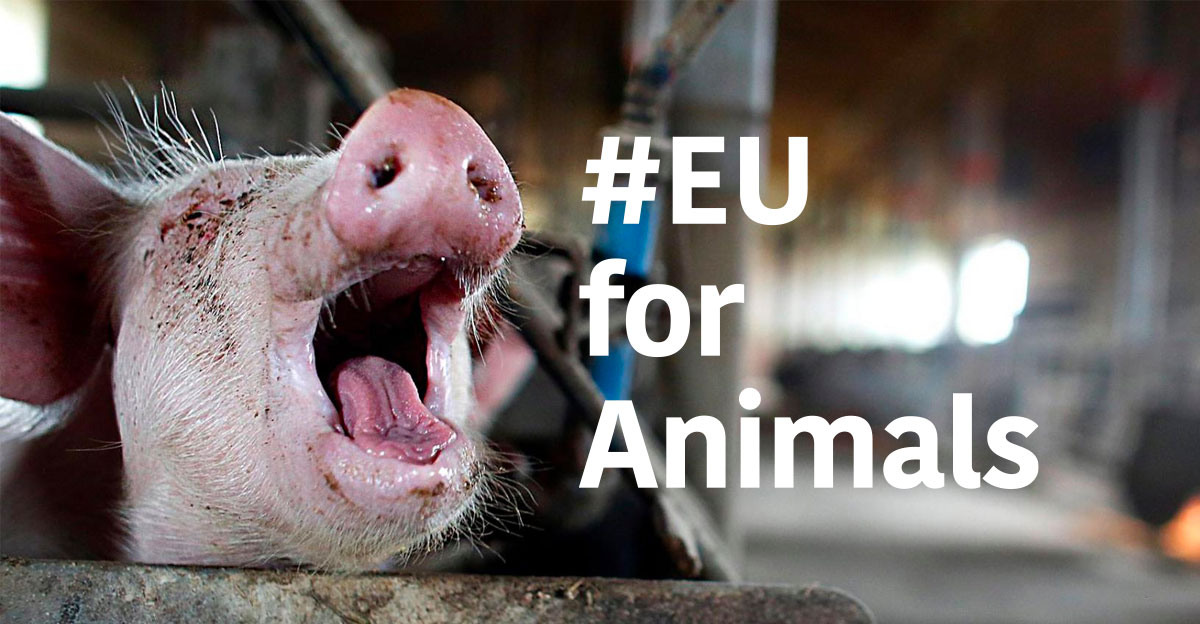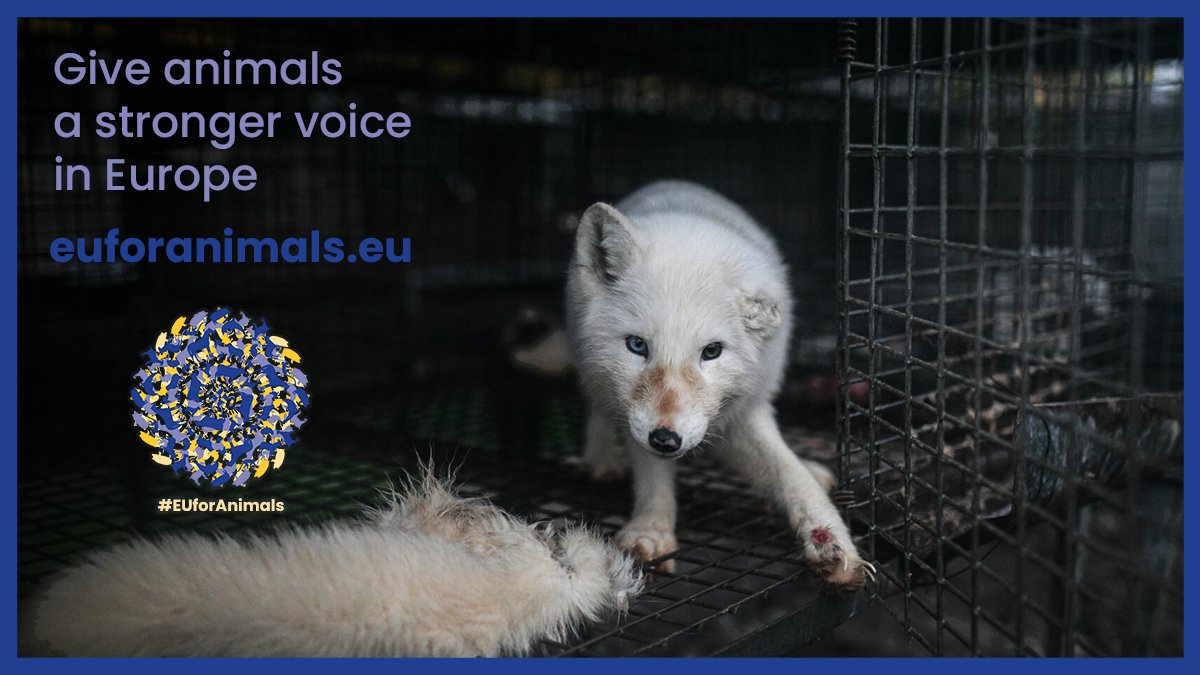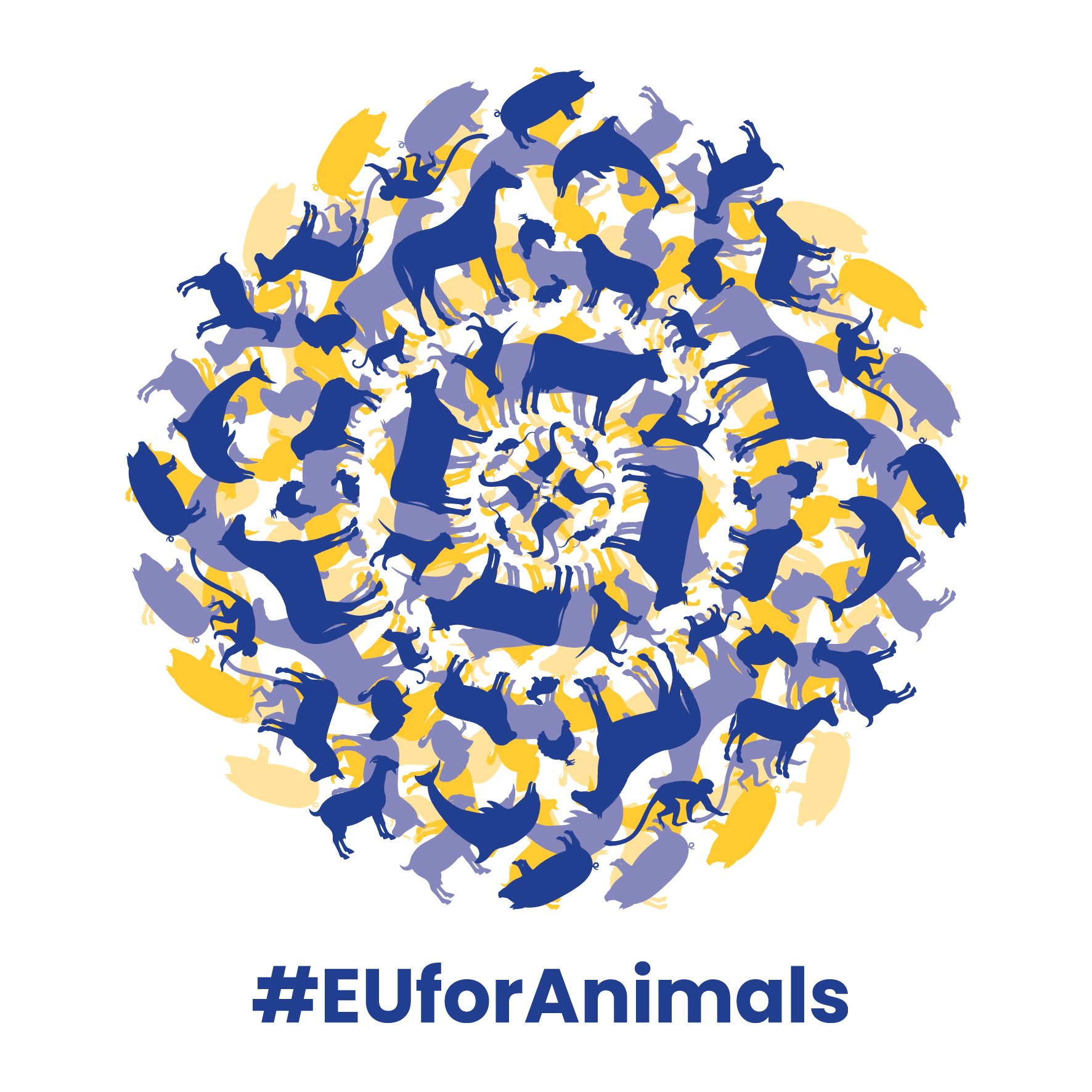OIPA IS PARTNER OF THE CAMPAIGN #EUFORANIMALS. WE DEMAND A EU COMMISSIONER FOR ANIMAL WELFARE TO GUARANTEE ANIMALS MORE RIGHTS
Animals need a stronger voice in Europe. Animal welfare should be constantly improved in the EU through ambitious legislative advancements and the allocation of adequate resources.
For this reason, OIPA has decided to support the campaign #EUForAnimals.

The involved associations demand that more relevance will be given to animal welfare by making this responsibility explicit in the name of the relevant Directorate-General and the job title of the competent EU Commissioner.
Despite that, economic interests too often prevail over citizen demands and even over the demands of the European Parliament, which has repeatedly demanded that legislative changes to increase animal protection in the European Union should be introduced.
To limit such problems, some Member States have taken the responsibility for animal welfare away from the competences of the Ministry of Agriculture. We welcome such decisions and hope that they will be adopted in all Member States.
At the EU level, the Commissioner for Health and Food Safety is responsible for animal welfare, but this competence is not currently recognised in this job title.
We propose to highlight the importance of this topic and increase accountability by including explicitly ‘Animal Welfare’ into the job title of the relevant Commissioner.
In any case, this competence should continue to be kept separated from the ones of the Commissioner for Agriculture even if in the future there will be changes in the roles of the Commissioners.
Animal protection in the EU will be improved if this responsibility is emphasised and the relevant Commissioner is explicitly called upon to adopt a more proactive and progressive attitude on animal welfare on behalf of the whole European Commission, thus responding to the passionate call of European citizens.

5 REASONS WHY WE NEED AN EU COMMISSIONER FOR ANIMAL WELFARE
- Because Europeans care. The European Treaty recognises animals as sentient beings, able to feel pleasure and pain, to enjoy life or suffer. European citizens care for animals and would like to see their welfare needs taken into account through legislation, policies and the commitment of adequate resources. Sectorial interests should not prevail over citizens’ demands.
- Because improvements of animal welfare are necessary. Specific legislation on animal welfare has been produced at the EU level since 1974, and landmark laws were introduced since the early 1990s to phase out cruel farming practices such as veal crates, sow stalls and conventional battery cages for egg production. Nevertheless, for some species no specific legislation exists and they are left unprotected.
- Because it is already being done at national level. In some Member States animal welfare is no longer managed by the Ministry of Agriculture. Since 2014, in the three regional governments of Belgium ministers have been given a title that includes animal welfare as one of their main competences, thus facilitating the adoption of more progressive legislation and policies, and their enforcement.
- Because sectorial interests should not undermine progress. The excessive influence of economic interests has often delayed progress in the proper enforcement of existing legislation or its updating when necessary. Live animal transports are a clear example of this problem. The Commissioner responsible for animal welfare should have more influence and powers on this topic in the EU institutions.
- Because it would help animals concretely. There is much to be done in terms of animal welfare, and society is asking for it to be a higher priority on the EU agenda. Including animal welfare in the job title of the relevant EU Commissioner is possible, sensible, and would contribute to ensure that proper action is taken on this topic any time animals are going to be affected by EU legislation.
If you care about animals and want to see a higher level of animal protection in EU legislation, now you can raise your voice:
If you are an association and you would like to support the campaign, contact us at: international@oipa.org

